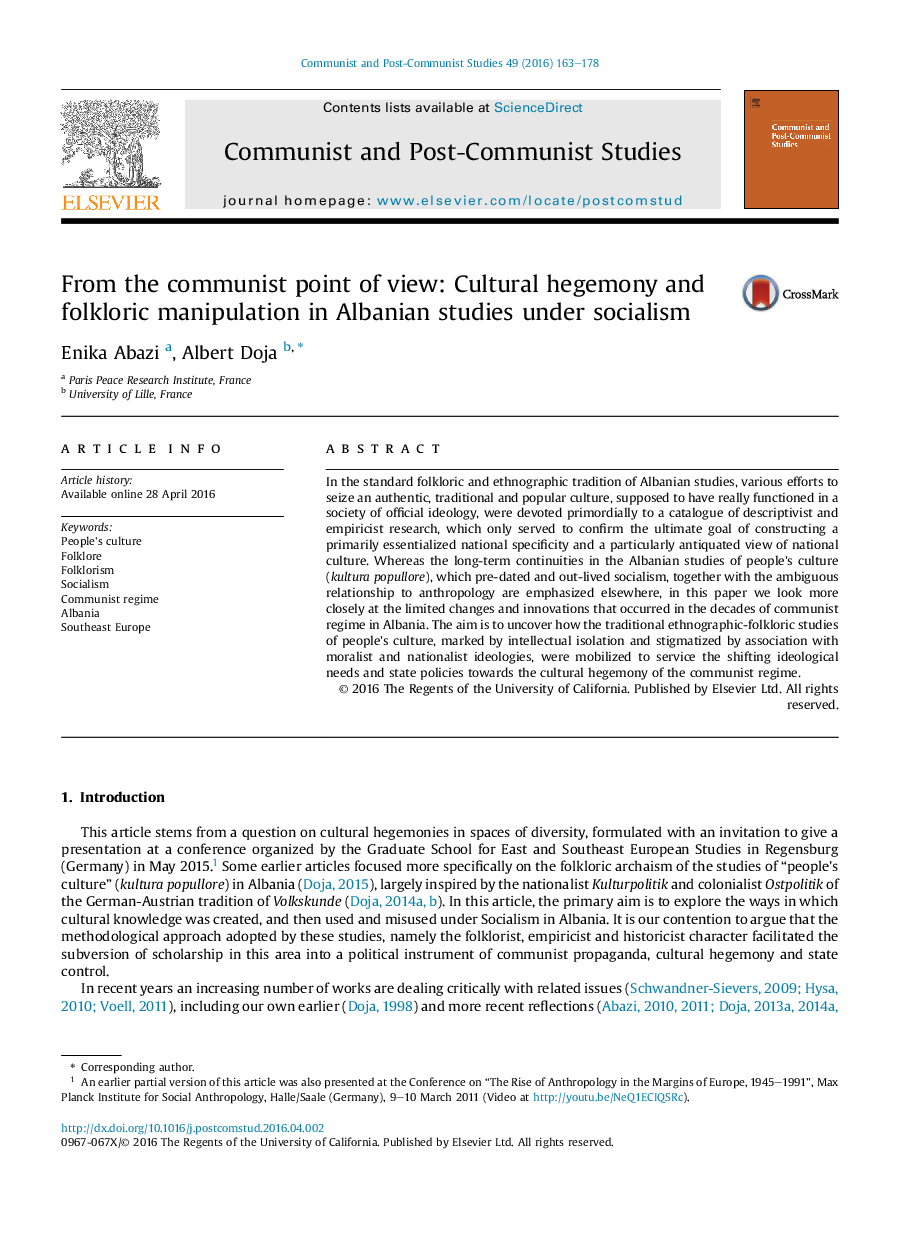| Article ID | Journal | Published Year | Pages | File Type |
|---|---|---|---|---|
| 1046337 | Communist and Post-Communist Studies | 2016 | 16 Pages |
In the standard folkloric and ethnographic tradition of Albanian studies, various efforts to seize an authentic, traditional and popular culture, supposed to have really functioned in a society of official ideology, were devoted primordially to a catalogue of descriptivist and empiricist research, which only served to confirm the ultimate goal of constructing a primarily essentialized national specificity and a particularly antiquated view of national culture. Whereas the long-term continuities in the Albanian studies of people's culture (kultura popullore), which pre-dated and out-lived socialism, together with the ambiguous relationship to anthropology are emphasized elsewhere, in this paper we look more closely at the limited changes and innovations that occurred in the decades of communist regime in Albania. The aim is to uncover how the traditional ethnographic-folkloric studies of people's culture, marked by intellectual isolation and stigmatized by association with moralist and nationalist ideologies, were mobilized to service the shifting ideological needs and state policies towards the cultural hegemony of the communist regime.
